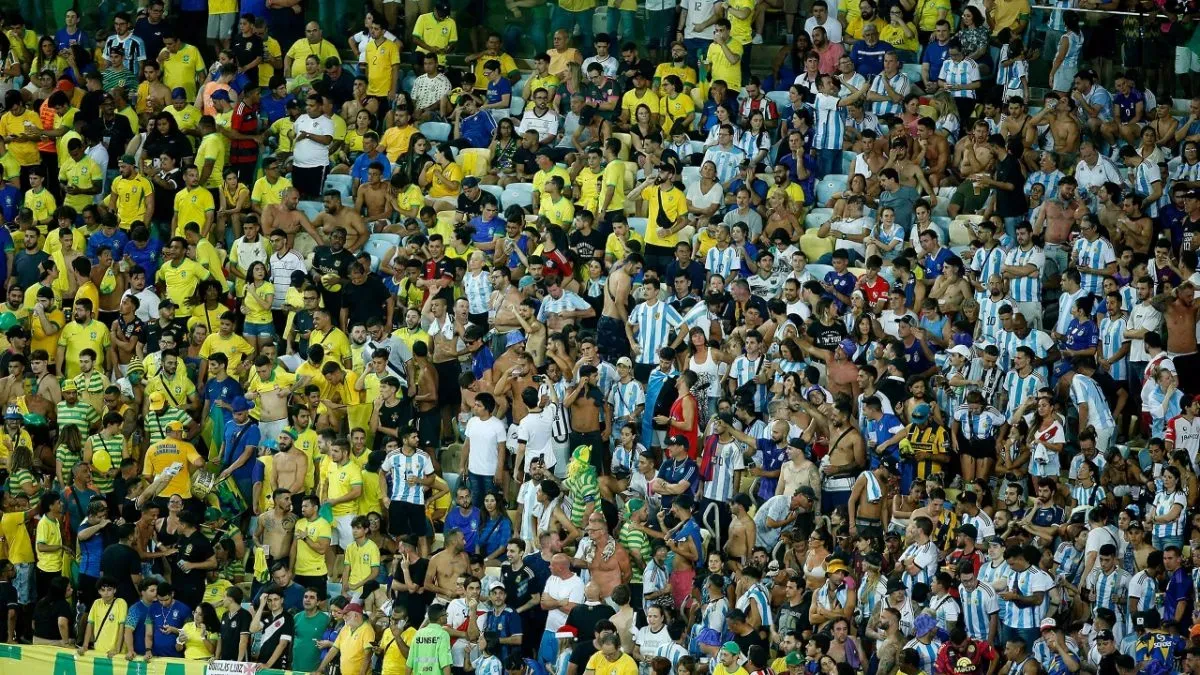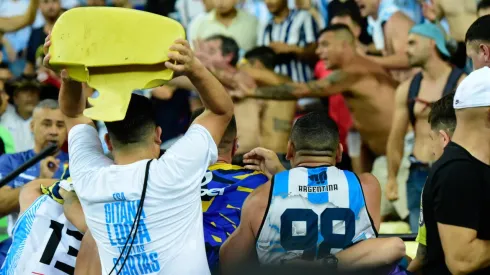After the brawl and violence broke out during Brazil’s World Cup qualifier against Argentina, the Confederation of Brazilian Football (CBF) still has not taken responsibility. According to their argument, the local authorities had no problem with the security preparations or the supporters’ lack of separation.
Each side blamed the other for the violent occurrences that occurred on Wednesday, according to the Rio de Janeiro police. Argentina prevailed 1-0 against Brazil. Before then, the match needed a 27-minute postponement. An altercation between Brazilian and Argentine supporters in the Maracana’s south stand caught the attention of players.
According to a statement from the CBF, they had already disclosed all information on the match’s security and had not received any suggestions. On Thursday of last week, police reportedly learned the two clubs’ supporters would share the stands without separation.
To keep fans safe during the match, authorities used a force of about 700 military police officers and 1,050 private security guards. The section of the stadium designated for the Argentine team‘s supporters lacked security personnel and a dedicated entry.
Problems started during the playing of the national anthems, which led to the police taking action against the visiting supporters. After returning to their locker rooms, the Argentine players eventually returned to the pitch after things were under control. Argentina captain Lionel Messi said playing would have eased the tensions in the crowd.
Two spectators went to the hospital with head injuries after the altercation. Brazilian authorities took eight Argentines into custody on charges of instigating the violence.
What did CBF and local police each say?
“Security of the stands was in charge of a specialized company hired by the CBF. Following its own protocols, the CBF took the decision to release the sale of tickets without quota criteria for fans from both countries and, more seriously, not to delimit spaces in the stands for each fan,” said the Rio local authorities in a statement.
Meanwhile, the CBF revealed a version of their own. “Staging the match with mixed fans has always been within the purview of the RJ Military Police and other public authorities, as is the standard in competitions organized by FIFA and Conmebol.”

Traditionally, games with this much tension have a police barrier between supporters. As seen, the Brazil and Argentina supporters mingled together.
“The action and security plans were approved without any reservations or recommendations by the public security authorities present (RJ military police, SEPOL, the Public Ministry, Fan Court, Municipal Guard, CET-RIO, mayor, concession holder Maracanã, SEOP, etc.).”
“Other matches between Brazil and Argentina, even with greater appeal, such as the 2019 Copa América semi-final, were also played with mixed fans. This is not a model invented or imposed by the CBF.”
Brazil penalty for fan fights against Argentina
Mayhem ensued before Brazil‘s 1-0 loss to Argentina at the Maracana. Now, the Selecao may be subject to a points deduction or matches behind closed doors.
According to Article 17 of the FIFA disciplinary rule, “hosts clubs and associations are responsible for order and security before, during and after matches.”
This means that CONMEBOL may punish the Brazilian Football Confederation accordingly. That hosts are “liable for incidents of any kind” is a further point made. Globo, a Brazilian news outlet, said that FIFA is planning to launch an inquiry into what happened. FIFA’s disciplinary policy does not explicitly mention fines. Regardless, the Brazilian newspaper identified possible penalties.
The alternatives include losing the effectiveness of home games. Brazil may play one or multiple matches without spectators. Or, CONMEBOL may put Brazil’s home games at neutral locations.
The alternative to those is a points deduction. That is a massive blow to Brazil’s current standing. After six games in World Cup qualification, Brazil has just seven points. That puts the side in sixth place out of 10 teams. A points penalty might be devastating for them.
PHOTOS: IMAGO















